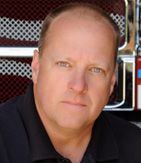By Rick Markley, Editor-in-Chief
There are countless reasons to pause our daily lives this week and reflect on the terrible loss and incredible heroism from Sept. 11, 2001. Likewise, there are countless reasons to explore what that day taught us and the actions we need to take based on what we learned.
To that end, I asked the Fire Chief/FireRescue1 editorial advisory board members to contemplate two questions.
- What lessons did we fail to learn from 9/11?
- What lessons did we learn but fail to act upon?
Some of their answers may surprise you. Please use the comment section below to add your own insights and perspectives. As important as it is that we never forget, it is more important that we never stop learning from the things we remember.
 Rob Wylie
Rob Wylie
Like most if us who were breathing on that horrible day, I remember exactly where I was, what I was doing and the first thought that came to my mind when I saw the footage of a commercial jet tearing through the World Trade Center tower: Terrorism.
And here I sit, 15 years later, telling anyone who will listen, “This isn’t over,” the lesson I am afraid we failed to learn is that our enemy (yes, they are our enemy) is relentless and will not rest until they destroy our way of life or we destroy them.
In the immediate aftermath of the attacks, Americans pulled together and politicians found a way to provide funding for fire, EMS and law enforcement to train, equip and prepare for the next attack.
Alas, as happens too often in the USA however, our attention span was about the length of a reality TV show. And with no more high-profile attacks on the homeland, our focus drifted away from what only a few short months ago was the most important effort since the attack on Pearl Harbor to other things.
The American people and their elected officials took their eye off the ball. Funding dried up, training waned and people like me who were still sounding the alarm were dismissed as paranoid and alarmist.
Well guess what? Our enemies took advantage of our short attention span and prepared, trained and equipped their forces. We have, as a result, seen very successful attacks in Paris, Mumbai, as well as in San Bernardino and Orlando.
We failed to learn the lessons of history: Radical Islamists have long memories and infinite patience. They will attack, or inspire others to attack again and again until we wake up and train, equip and staff our first responders to detect, deter, mitigate and prevent these attacks in our homeland.
There will always be other issues that are important, but they are all moot if we are not safe in our own country.
The biggest lesson we learned but failed to capitalize on is that having an ocean between our enemies and us was not a guarantee that we would be safe at home.
After the Sept. 11 attacks, we took many great steps to make America safer. We broke down many intelligence silos; we worked together across agency lines to detect, deter and prevent act of terrorism on the homeland.
What we have failed to do is to maintain that posture. We want neat, quick understandable initiatives that can be summed up in a 20-minute newscast. When the tempo of the attacks slowed and the success stories of attacks prevented mounted, most Americans said “OK, that’s done, what’s next?”
We dropped our guard. We need to re-capture the momentum we had after the attacks of 2001. The level of protection and preparedness we were headed for has to be reconstituted. It makes all of us safer in every aspect of our existence.
Better trained, better equipped first responders will benefit their communities not only in a time of a terrorist attack, but in natural disasters, human disasters and all other the other misfortunes that befall us all at one time or another.
What are the lessons of our recent history? Are we doomed to repeat them through our failure to learn from them? I hope not.
 Ted Aroesty
Ted Aroesty
Unified command is still elusive in many areas. Communication is still in silos. Fire, EMS and police are still working and communicating in there own universes.
Yes there are some areas where there has been progress. However, from what I can see the general rule has not changed.
By and large there is a need to better fund the fire service to be better prepared. The further away we get from 9/11 and the memory we have at hand, the easier it becomes to fund less of the needs to keep the fire service ready and prepared for the real potentials that we face.
The world is getting less stable every day and the funding for the first responders on the front lines does not seem to be keeping pace with the increased risks.
Additionally, in-building communications are still a big challenge. The nature of the construction of large buildings creates challenges for good communications for our radios systems. Also, large incidents with mass traffic quickly overwhelm our communication systems in many cases.
What do you think? What have we failed to learn from 9/11? What have we learned, but not yet applied? Leave your answers in the comments.












